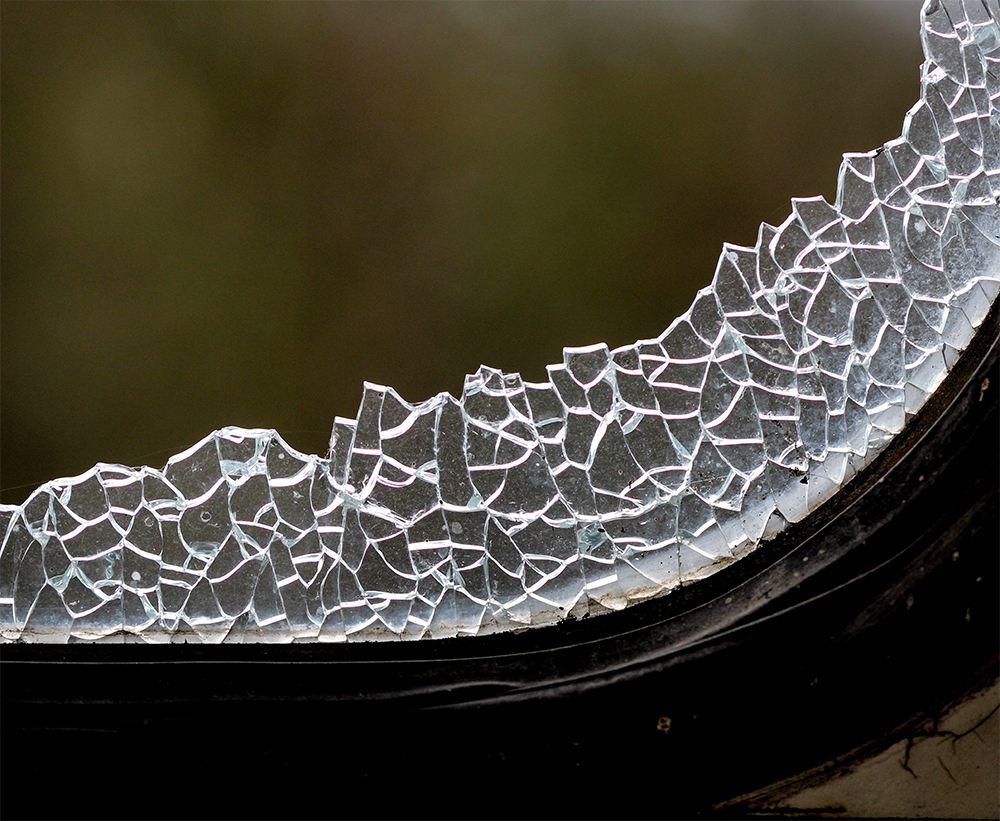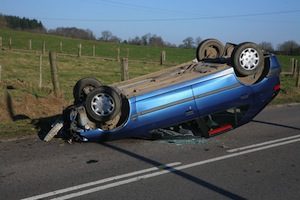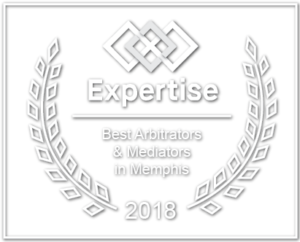
An important safety element in motor vehicles which is often overlooked is the glass or “glazing.” Not only do a vehicle’s windows keep the elements out while allowing visibility, but the vehicle’s glazing also serves as an essential part of the occupant restraint system.
There are two basic types of glass used in vehicles today:
Laminated glass is what is in the windshield of your vehicle. It consists of two pieces of glass bonded to a transparent plastic interlayer. Although the glass parts of a laminated window still break the way ordinary plate glass does, the fragments stick to the interlayer rather than flying in on the vehicle’s occupants. The fractured glass is contained in a small area radiating out from the initial break in a “star” pattern. The internal plastic layer also acts as a “safety net,” absorbing energy from occupant contact while keeping the occupant inside the vehicle. This reduces possible brain injury as well as ejection. The laminate can also keep external missiles from entering the vehicle. It is legal to use laminated glass in any window in a vehicle.
Tempered glass, which cannot be used in the windshield but can be used in all other window openings of a vehicle, is plate glass that has been heat tempered to increase its strength. Because of the process used in manufacturing it, tempered glass is three to five times stronger than regular plate glass. The tempering process also affects the way the glass breaks. When one point in a window made of tempered glass is broken, the entire pane of glass fractures and disintegrates. All it takes is a pin-point hole in the outer surface, and the tempered glass completely fails. The fractured pieces are supposed to be small and without sharp edges; however, this is not always the case. The glass breaks from the inside out which causes the “clustering” effect of the glass. The internal fractures in the glass often do not come to the surface, the result being large groupings of glass fragments held together. These clusters can be several inches in diameter and have jagged edges.

Even though laminated glass is generally safer than tempered glass, motor vehicle manufacturers prefer to use tempered glass in side, rear and roof windows because it is cheaper for them to manufacture.
Side curtain air bags can protect occupants, but if the side window glass is gone, the air bag has no back against which to inflate. It is also very possible that a hand, arm or even a head can get out a window opening if the side window glass is gone before the air bag inflates.
Defective glass or glazing can result in a number of injuries during a motor vehicle collision:
- It can allow an opening through which an occupant can be completely or partially ejected and thus severely injured or even killed.
- It can cause blinding.
- It can cause severe cuts, sometimes resulting in amputation.
With over 30 years of experience in pursuing defective glazing claims, the lawyers of Wolff Ardis, P.C. should be your first call when you are considering a defective glass or glazing case.







